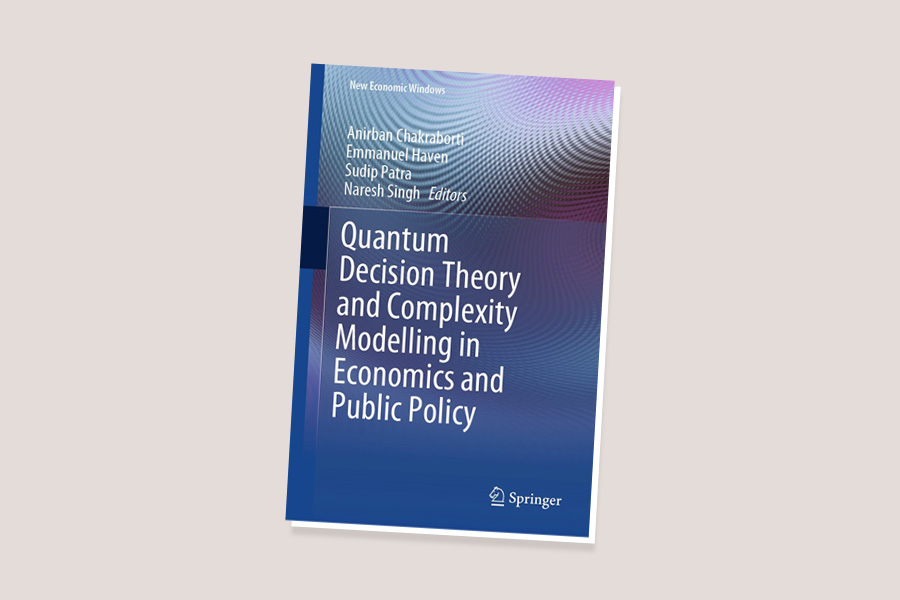
The findings suggest that quantum-like modelling can provide a useful framework for understanding complex financial systems and making informed investment decisions.
Authors
Sudip Patra, Associate Professor, Jindal School of Government and Public Policy, O.P. Jindal Global University, Sonipat, Haryana, India.
Sivani Yeddanapudi, Centre for Complexity Economics, Applied Spirituality and Public Policy, O.P. Jindal Global University, Sonipat, Haryana, India.
Summary
Quantum-like modeling is a new but well received paradigm in social science that draws from various mathematical tools used in quantum science, such as information theory. However, we argue that there are deeper meta-principles, such as Contextuality-complementarity, Uncertainty, and Non-locality, that give meaning to these models.
These meta-principles are equally applicable in both the physical and cognitive domains, but with different specific measures. It is important to exercise caution and recognize that economic theory should not be equated with quantum theory per se.
In this paper, we demonstrate a simple application of quantum-like modelling in financial economics, specifically in the much-debated portfolio diversification theory given radical uncertainty. Our findings suggest that quantum-like modelling can provide a useful framework for understanding complex financial systems and making informed investment decisions.
Published in: Chakraborti, A., Haven, E., Patra, S., Singh, N. (eds) Quantum Decision Theory and Complexity Modelling in Economics and Public Policy. New Economic Windows. Springer, Cham.
To read the full chapter, please click here.

